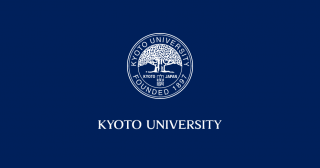The summer school program "Development of Renewable Energy in ASEAN" took place from 10 through 21 August at Chiang Mai University (CMU), Thailand, with 15 undergraduate students participating. It was organized by Kyoto University's Human Security Development Educational Unit in collaboration with the Organization for the Promotion of International Relations (OPIR) as an international exchange/fieldwork course, worth two Liberal Arts credits that can be earned by meeting certain conditions, and as part of the University's ASEAN University Network (AUN)-Kyoto University (KU) Student Mobility Program toward Human Security Development, a Re-Inventing Japan Project supported by the Ministry of Education, Culture, Sports, Science and Technology (MEXT).
The participants, from the Faculties of Engineering, Agriculture, and Law, were accompanied by four KU faculty members during the 12-day program: Professor Keiichi Ishihara of the Graduate School of Energy Science, Professor Hideaki Ohgaki of the Institute of Advanced Energy, Professor Tetsuo Tezuka of the Graduate School of Energy Science, and Dr Hiromi Tobina, a Lecturer in the Human Security Development Educational Unit.
The summer school program involved the participants working alongside CMU undergraduate students to learn about various aspects of renewable energy, including the fundamentals, current use, and potential social, economic, political, and technical hurdles to wider adoption in Thailand. In addition to lectures, activities included study trips to energy facilities in the northern part of the country, such as geothermal, biogas, and biomass facilities and community-based, small-scale hydro power plants.
Students from both universities also engaged in small-group discussions throughout the program and delivered presentations on topics such as the current state of renewable energy in Thailand and their home countries' energy prospects for the year 2050.
The participants also learned about Northern Thailand's history and culture through visits to Wat Phra That Doi Suthep and other Buddhist temples, an orchid farm, and the traditional craft village of Bo Sang.
The organizers would like to take this opportunity to express their sincere gratitude to several CMU faculty members, and particularly Professors Chatchawan Chaichana and Juggapong Natwichai, for their help in organizing and conducting this summer school, which provided those taking part with invaluable opportunities to gain firsthand knowledge regarding Thai society, Thailand's renewable energy situation, and the country's environment.

At a small-scale hydro power plant

Group presentation

At Wat Phra That Doi Suthep

Lecture

At the Energy Research and Development Institute

Closing ceremony group photo





